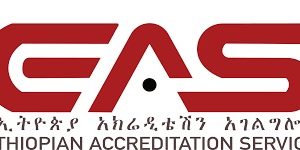
With a population of more than 100 million and the fastest growing economy in the region, Ethiopia presents blistering economic potential that is yet to be fully unleashed. So, the task ahead is to systematically employ strategies that will yield structural transformation.
As a country, Ethiopia has achieved double-digit GDP growth on average for the last 10 years. This growth has resulted in heavy investment in infrastructure and education, which brought huge headway in infrastructure development, and in creating a strong labor pool.
However, as some of these gains were made at the cost of incurring significant external debt, and without extensive progress in job-creation or private sector investment, some challenges are looming on the economy. Despite its decade plus years growth, the economy has also seen some macroeconomic imbalance such as poor export performance and tax collection that needs to be addressed within the coming years.
This daunting task is not lost on Prime Minister Abiy Ahmed’s administration, as demonstrated in the reform agenda he initiated after coming to office. It recognizes the full picture of the fundamental problems facing the economy. The economic reform effort has been to identify promising areas of economic growth, highlight constraints to such growth, and devise strategies to address both the opportunities and the challenges.
The Premier has undertaken nationwide reforms to address these structural challenges and improve the economy by working on homegrown policies. To this end, the administration is doing more to diversify a productive and competitive economy, and catalyze private sector-led economic growth in the days ahead.
The government is also focused and committedly working to improve ease of doing business in Ethiopia by taking various reform measures, whilst at the same time working to create an enabling business for small and medium enterprises. The effort to improve the country’s ranking in ease of doing business is a high-level ministerial initiative which is chaired by the Prime Minister himself.
Moreover, it is working to tackle corruption by introducing and improving transparency and accountability in the management of mega projects and public funds.These reforms have at their heart a genuine understanding of the realities of the economy, and ways to unshackle the structural problems shackling the economy. And in order for them to be effectively implemented and bear results, the government will need to be supported by the public and various other partners.
Support from various stakes will help seed and nurture the initiatives and help them blossom. The fact that recently US has pledged to support the macroeconomic reform is a good news. Such support is also expected to contribute to the policy dialogue, and craft professional recommendation for the new economic reform.
In 2019 and beyond, Ethiopia is working to reform its macroeconomy so that it can bypass its structural problems and unleash the potential of its economy. And among the series of reform initiatives, the focus to undertake structural changes in its macroeconomic arena will be critical to ensuring long-term growth, and economic transformation. The government should do well to do exactly that.
The Ethiopian Herald, August 28/2019





